- Home
- Peter Carey
A Long Way From Home Page 22
A Long Way From Home Read online
Page 22
‘Your mother kept you close with her and her sisters, Alice, Betty, Junie, with them all the time, and when he went down to the springs (over there, you see them trees) to get the long rushes and small bush onions, he left you langa coolamon.
‘That same day, Kev Little sent old Eric Porter off to find a beast, for meat, we call them killer. Eric got the cataracts. He could see OK for shoot bullocks, nothing much more.
‘You were a baby and you cried and she was a mother and she had to keep on digging and she was filling up her basket and there was a bloody big wind, what we call a willy-willy.
‘Them Christian mob say it was the devil but we know that eagle, we know her name. Wamulu, the wedge-tailed eagle. She picked you up in her sharp claws and took you off to eat.
‘Oh what happened to our baby? The mother bin running. They hear you crying in the sky. Give our baby back.
‘Eric had Kev Little’s .303. I going to kill that eagle. Oh no, you will kill the bloody baby.
‘Silly women, stop shouting. He fire and the bullet miss the baby. OK, got that eagle.
‘The wamulu drop you. You fell langa bush. Little ones, kids, bin hunting snakes, baby bin nearly hit them, kids bin bring you back la camp. He special one this kid.
‘You were special, but look out. There is still the Welfare fellahs, worse than any eagle. They come into the camp and the kids would get hidden. You know Moses in the bulrushes? Pharaoh’s daughter finds the baby. OK, except no daughter but two coppers travelling in the horse and dray. They took you away from Polly, and growled her because your shoulder was hurt and they washed off all the good medicine and put you in the dray. Removal of a half-caste child. They said they would took you to the doctor. Your mother walk behind that dray all the way to Derby. Cruel buggers. They end up let her carry you, but only so they got some peace. For two hundred miles she must of hoped she get to keep her baby after all, but when you got to Derby they stole you proper.
‘When she learn you were in the ship, your mother went wild. Soon she try to burn down the police laundry hut and they catch her and put her in jail and when she come back to us she was very thin. Even Mabarn could not help her. She got even thinner. Then she had another baby from a whitefellah and she had another try at burning down and then she was in jail. She bin washed up, died la prison. We done plenty crying in this camp.’
Three little boys, Peter, Lenny and Oliver Emu, brought me home to the teacher’s residence. We came past Carter who was inside his barbed wire fence, playing cricket with his boy and girl. He called out that I had better take a wash. I thought, he is standing where the murderer Kev Little stood. God take this knowledge from me. I was sick to know who I must be. I began to write down my understanding of myself but the sentences were tangled and knotted beyond correction. I still had my pencil in my hand when I hurled my guts down the outhouse hole.
7
The Bobs car had covered nine thousand miles since we left the Sydney showgrounds. We were seven hundred miles from the full circle. Now, at four in the morning, we came down through the Pentland Hills, just twenty miles from Bacchus Marsh. This was territory we had covered so many times, through Mount Egerton, past Mount Buninyong, down across Pykes Creek Reservoir where Ronnie hooked a redfin in the bum, past the turn-off to Blackwood where we took the kids to swing on the suspension bridge and drank fizzy water from a rock, past the pub at Myrniong where Halloran could not drive the Jag, a different world to now.
Our kiddies would be awake, waiting for us at the bottom of Stamford Hill and I had not known how this would feel, did not know, even as it happened to me: the streetlights blazing before the sunrise, Beverly all gussied up, shivering in the cold. She had spent her remaining money on a painter employed to make the big portrait of me on the canvas sign. Of course she put Titch in, but smaller. WELCOME MISSUS AND MISTER REDEX. My smile was bright as a doll’s. I hugged my solemn little Edith, and Ronnie charged and winded me. Could they feel what had happened to their mum? Did it feel wrong to them as well? Ronnie clung tight, and had to be removed so I could get a hug from Beverly.
The kids’ classmates from the state school presented me with wildflowers in a peanut butter jar.
Edith asked me what the matter was. I did not want to stay. We were fifteen minutes ahead of schedule but suddenly Mummy and Daddy must tear themselves away. We left without even inspecting the construction of the garage. I drove down that familiar main street, police station, courthouse, Benallack’s chemist shop in darkness, only Johnny Bird’s bakery with lights on, and I entered the tunnel of dark trees, our Avenue of Honour, our war memorial, each tree had been a son.
Ahead of us lay fame. I didn’t want it, even then, which made me different from my shining husband still alight from whatever admiration he had received in Bacchus Marsh.
In my handbag was a scrap of timber, tongue and groove, with Mrs Bachhuber’s Melbourne phone number inscribed with a carpenter’s pencil. I felt no need to mention its existence. Ditto Titch did not say a word re his shopping list for Henry Bucks: the lemon lambswool sleeveless sweater, the Harris Tweed, the pork pie hat, the red silk scarf he would use in magic tricks.
Titch and the paddocks were dark and hidden. Melbourne was aglow on the horizon as we crossed the Kororoit bridge, the forlorn explosives factories on our right. I told myself that I must talk to Mrs Bachhuber to set her mind at rest, but who was I kidding? Why would a supposed adulteress speak to the abandoned wife? Why was I always getting twisted up in other people’s business?
The suburbs surfaced from grim dark, and we were in Footscray, with abattoirs on one side of the road and the Flemington Racecourse on the other, below that steep murky park with its evil yellow lights.
There was a phone box and I stopped although I had always thought this park a place of lurking murderers. Titch could not argue because we had time to spare. He could have spent those minutes with his kids, but now he might as well wait here as the new sun caught the muddy river and I dropped my pennies in the phone, pressed the button, A or B.
To myself I said that sarcastic wartime prayer: Don’t panic Tex, remember Pearl Harbor.
‘Hello,’ she said, a woman still asleep.
I told her I was calling in relation to Willem Bachhuber.
‘What has happened?’ she said, and she surprised me with her anxious tone.
‘I have located Willem Bachhuber,’ I said.
‘And you are?’
‘I am Mrs Bobs from Bacchus Marsh.’
‘Yes. What do you want me to do about that?’
‘I’d like to talk to you.’
‘It’s not even six o’clock.’
‘We are in the Redex Trial. We’re leaving Melbourne early tomorrow.’
Titch had left the car and was checking oil and water. He had the wrong idea of who I was talking to and why.
The woman was well spoken, like a girl with a convent education. ‘I don’t really see the point,’ she said.
Adelina, I thought. ‘Perhaps your son would like to know about his father?’
‘That would be up to his father, wouldn’t it? He could have called us any time he liked.’
‘Fair enough. Of course. I was wondering . . . ’
‘Yes?’
‘Could we meet? Could you pass along a picture of the little boy?’
‘Why would I give you that?’
‘I’m a mother,’ I said, although that made no sense.
‘He’s had six years. We never heard from him.’
‘Mrs Bachhuber, I know what happened.’
‘Oh, I bet you do,’ she said and I imagined all the things she might imagine. ‘It was a cruel thing he did to his own boy.’
‘He misunderstood what happened.’
‘Yes, I know what he thought. You’d have to be blind and stupid to think that about your friend.’
‘You mean, the nurse?’
‘Actually the doctor now. Doctor Madison Lee. Our friend. He owes Madison. We all owe Madison
.’
‘Would you meet me?’
‘Why?’
‘Mr Bachhuber was our neighbour in Bacchus Marsh. Then he was our navigator on the Redex. We are Car 92. We became fond of him, my husband and I.’
‘That’s lovely for you both, I’m sure.’
‘The parking point is in St Kilda. The RACV depot on The Esplanade. It’s.’
‘Yes, I know where you mean.’
‘There are probably cars there now.’
‘Yes. There are.’
‘It sounds like you can see them.’
‘Look, none of us want to get involved in this again. We’re retired from Willie Bachhuber.’
‘Our car number is 92. It’s a Holden. I am Mrs Bobs.’
‘Goodbye, Mrs Bobs.’
I came back to the car to find my husband now behind the wheel. I thought nothing of it until twelve minutes later when the photographers swarmed him at Control. TRIAL LEADER they called him. I didn’t mind.
I had previously reserved the Prince of Wales Hotel on Fitzroy Street, but the booking had got lost. So it was the RACV depot for us. I lay across the front seat of the vehicle, like a puppy in a pet shop window with idiots tapping on the glass. I dozed and woke to find my husband dressed up in his new clothes, and for the first time I saw the signature pork pie in full display. If you had seen his companions, you would have thought him right at home: Arthur Dunstan, Joe Thacker, Green the bookmaker, like criminals and racecourse touts posing for the camera. It looked like my husband must be their mascot, his teeth a perfect echo of the Holden’s grill.
No-one told me that they had the final Melbourne–Sydney route cards which had been secret until then. They had written off the wifey, that was obvious, although with what authority I did not know. The day was sulky and overcast with big grey clouds blown across the bay from Williamstown and I was marooned on this sea of churned up gravel with the general public staring at me, my awful hair, bloodshot eyes. There was a slender woman with colourless eyelashes and a pretty face ruined by her frown. I thought, don’t stare at me. There was a child beside her, a gorgeous-looking black boy in a tartan shirt and turned up jeans, and behind her a man who I supposed at first must be the father. His skin black as black could be, and he showed a sort of grace you would never think to see in the RACV patrol depot, or even Acland Street for that matter, and they were staring at me, the three of them, and I went funny in the tummy when I understood. My face was dirty, my nails oil stained. As I approached them, they waited, inert, not giving, not taking, as unrelenting as a fence.
‘I am Mrs Bobs.’
‘Doctor Lee,’ the black man said. American. Is it too soppy to say his hands felt kind?
‘Mrs Lee,’ said Mrs Bachhuber and I was surprised because I understood the doctor was a bachelor, through and through confirmed. There was no doubting, however, his hand on the boy’s shoulder. It was he who encouraged him towards me.
‘I am the boy,’ he said in such a solemn way I smiled. He was Ronnie’s age. He had Willie’s whippy figure, and such healthy brown black skin, not at all like the doctor’s whose black was almost blue. ‘My name is Neil.’
And then I did not know what to do.
The wind off the bay was cold and smelled of seaweed. The boy’s legs were as skinny as his father’s and he shivered and I thought, what have I done?
‘Have you ever seen a Redex car before?’
He shook his head.
‘Would you like to sit behind the wheel?’
He referred this question to his mum who took his hand and I opened all the doors and sat him behind the wheel and invited all of them inside. The doctor seemed like he was reluctant to stain his lovely clothes but in the end he was a boy like other boys, seduced by the legend of the Redex. I decided I would take them for a ride, why not.
Of course I was filthy but it was too late to be ashamed. I put the boy and his mother in the front, and shook out a blanket for the doctor and I began the engine with a mighty roar that had Dunstan leaping from the bonnet where he had been preening for the press. Titch looked on incredulously, but he was not owed an explanation when his wifey drove the car away. Dunstan was his secret. This was mine. I took them for a ride down the road beside Port Phillip Bay, all the way to Brighton and then back and we did not have to talk about anything except the car and how fast it went and if we might win and how many miles it was to Sydney and I wanted to tell the boy he was sitting where his father had sat, but that was not my place. I bought him an ice-cream, on Acland Street, and when we were back at the RACV I thought I must give him a memento and I found the strip maps and the navigator’s notebooks I had hidden from my husband. I told him we were going to win and that these maps would be historic. I told him they had been made by the navigator who had wanted him to have them. I watched him take them in his beautiful hands and could see he had a bright feeling but I could not know exactly what that was.
‘We have to go now,’ he said. ‘Thank you for the ride.’
He was a polite boy and very good-looking and I knew no more than that, or what else I might do, and I watched the three of them, the beautiful blue black man and the blond woman with colourless eyelashes and Willie Bachhuber’s solemn boy, threading their way through the crowds and cars.
8
With no car I was condemned to be a teacher, imprisoned in a limestone cave previously used to store munitions in a war, a dusty schoolhouse without books or blackboard or even the usual map to show the far reaches of the Empire.
As chance would have it, my scholars had their own strip maps, from the Redex car. These they traded like paper scrip. In this they were just like the kids in Bacchus Marsh who gave such value to the Asian export labels from the condensed milk factory. The class in Quamby Downs could not read the maps any more than the Marsh class could write those Chinese characters. They could not even draw Australia in the dust. This, I decided, would be my gift to them. I would teach them something useful before I fled.
I borrowed an atlas from the unfriendly Carter girl and one evening after tea (as they called it) I whitewashed the smoothest cave wall. As my predecessor had hoarded bags of ink powder of varying brands, I mixed ink while the wall dried. Then I found a cutting-in brush on the verandah of my residence. Then I returned to the cave where I made a blue map of Australia that stretched from my feet in Tasmania to my head at Cape York.
The kerosene light brought annoying winged insects and also smirking Carter who came to comment from the peanut gallery. God knows how he got to be so noxious.
Had he been considered handsome in the Western District of Victoria? Did all the most desirable graziers have fair hair and parrot noses? What, I wondered, gave him such confidence in his ignorant opinions?
‘They can’t be taught,’ he said.
‘Leave that bit to me,’ I said.
‘You’re not familiar with the animal, Bachhuber. The blackfellah, he’s a bloody genius with directions.’
I thought, what made a Victorian sheep farmer such an expert on the people of the Kimberley?
‘It’s like the world’s his footy field,’ he said. ‘He knows who’s behind him and who’s ahead. He has a completely 360-degree sense of everything. He’s like this in the bush. But give him a bloody map, mate, he hasn’t got a bloody clue.’
What joy it would be to prove the hateful creature wrong.
The cutting-in brush was perfect for lettering, for Melbourne in particular with all is clear straight lines. My Sydney was OK, Brisbane even better. By the end of Townsville my tormentor had gone off for another drink and when I had written Captain Cook 1770, I washed my brush.
I allowed two weeks for my geography sessions but before that time the Punka Wallah arrived with a message. He was to inform me that there would soon be a big mob of cattle, five hundred bullocks, rushing past my cave. I was therefore to let them little buggers go to meet their fathers, brothers, those kings and princes in their stockman hats.
The Punka Wall
ah’s name was Tommy Tailor (or Tom the Tailor) and his arms were thin and wiry as the rope he pulled. I asked him would there be a cook travelling with them.
Them fellahs had to eat.
How did the cook travel?
He would have a bloody cart.
Escape, I thought, laying down my stick of chalk.
Thus in the heat of the day I made a comic spectacle, running between the bullocks looking for a cook who was already setting up camp a day ahead. It was Crowbar who rescued me and propelled me into the safety of the camp where, soon enough, he tricked me into playing cards.
Later, at the Big House, the boss chastised me: ‘I don’t mind if you go sniffing round the camp, mate, but you can’t come in my house with scabies.’
I was distressed. I said I must see the dentist.
‘Calm down,’ he said. ‘Wash your hands.’
There had recently been, it seemed, a general infestation of scabies in the camp. Now no-one gained admission to the boss’s table without first scrubbing with Lifebuoy soap. Carter practised what he preached, leaving his chair between every course. And what a chair he then revealed. It made my skin crawl, to understand this was the throne that had known the broad backside of the rapist who begot me. I thought, if Carter knows I am a half-caste he might let me go.
I asked was that chair from Big Kev Little’s time.
‘What would you know about Big Kev?’
Nothing, I decided. ‘He was the manager before you?’
‘He was a Kimberley legend mate. Did you hear the flour story?’
Mrs Carter shot him a tight look.
‘It’s alright, mother. He can tell this one in church.’
The boy and girl had their father’s hair and soft pink scalps. I never saw kids cut their food so small.
‘This was thirty years ago, two managers ago,’ Carter said. ‘No, listen. Big Kev drove a truckload of the boys into Mardowarra after the shearing. He said come into the bar and see me and I’ll shout all youse buggers a drink.’

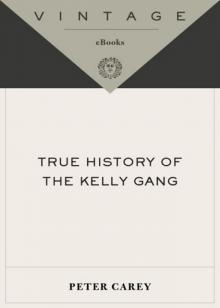 True History of the Kelly Gang
True History of the Kelly Gang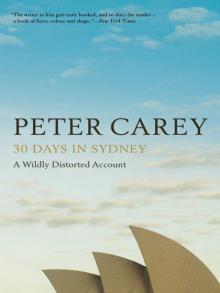 30 Days in Sydney: A Wildly Distorted Account
30 Days in Sydney: A Wildly Distorted Account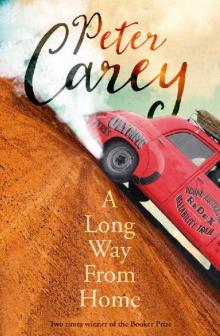 A Long Way From Home
A Long Way From Home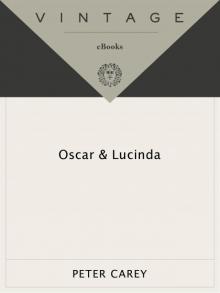 Oscar and Lucinda
Oscar and Lucinda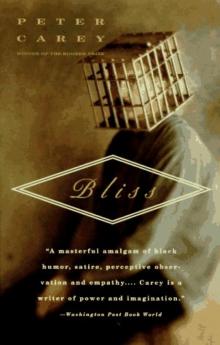 Bliss
Bliss Wrong About Japan
Wrong About Japan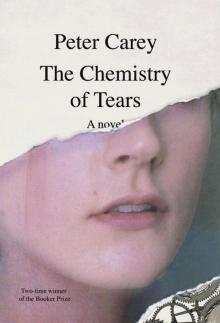 The Chemistry of Tears
The Chemistry of Tears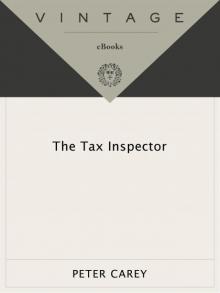 The Tax Inspector
The Tax Inspector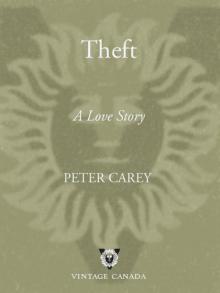 Theft: A Love Story
Theft: A Love Story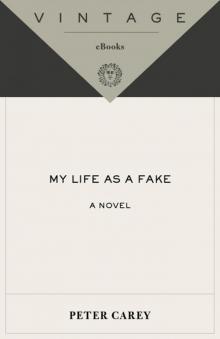 My Life as a Fake
My Life as a Fake Collected Stories
Collected Stories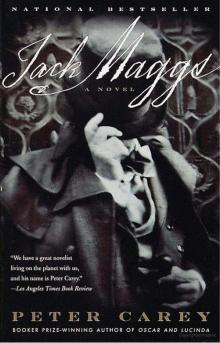 Jack Maggs
Jack Maggs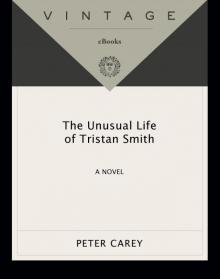 The Unusual Life of Tristan Smith
The Unusual Life of Tristan Smith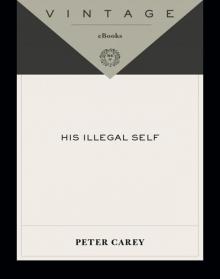 His Illegal Self His Illegal Self His Illegal Self
His Illegal Self His Illegal Self His Illegal Self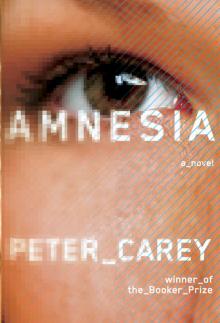 Amnesia: A Novel
Amnesia: A Novel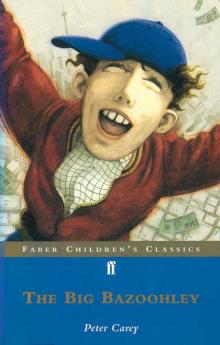 The Big Bazoohley
The Big Bazoohley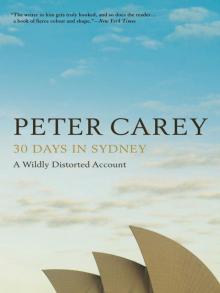 30 Days in Sydney
30 Days in Sydney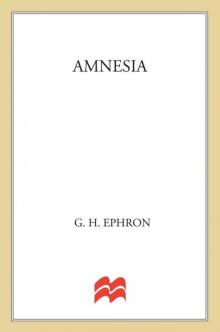 Amnesia
Amnesia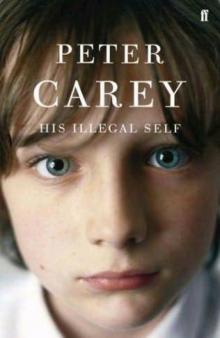 His Illegal Self
His Illegal Self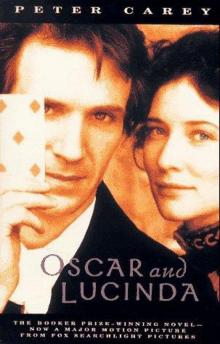 Oscar and Lucinda bw-1988
Oscar and Lucinda bw-1988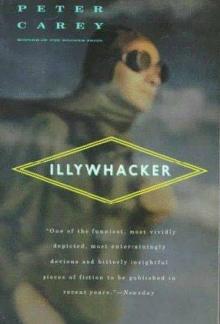 Illywhacker
Illywhacker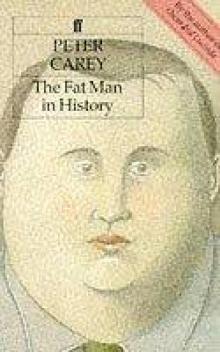 The Fat Man in History aka Exotic Pleasures
The Fat Man in History aka Exotic Pleasures